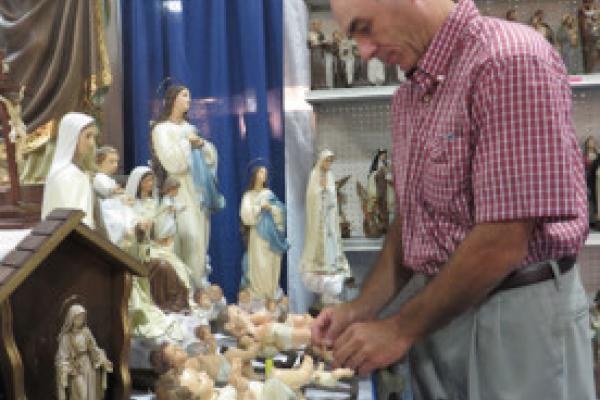Centuries ago, Roman Catholics helped kick-start the market for religious articles with their insatiable demand for rosaries, icons, prayer cards, and all manner of devotional objects and spiritual souvenirs.
But in recent decades, evangelical Protestants have dominated the art of religious retailing, building a national network of bookstores and stamping the Christian message on almost any item that an American consumer might want, from perfume to golf balls to flip-flops.
Now, Catholic entrepreneurs are looking to catch up, and at the 17th annual Catholic Marketing Network trade show last week (Aug. 6-9) there was a sense that the Catholic sector has a new opportunity to expand — if businesses can update their approach and broaden their inventory beyond the usual catalog of sacred objects.
“If you are a Catholic gift and bookstore and you are not willing to reinvent yourself, you are going to be out of business,” said Alan Napleton, president of the network, which organizes the convention.
Read the Full Article

